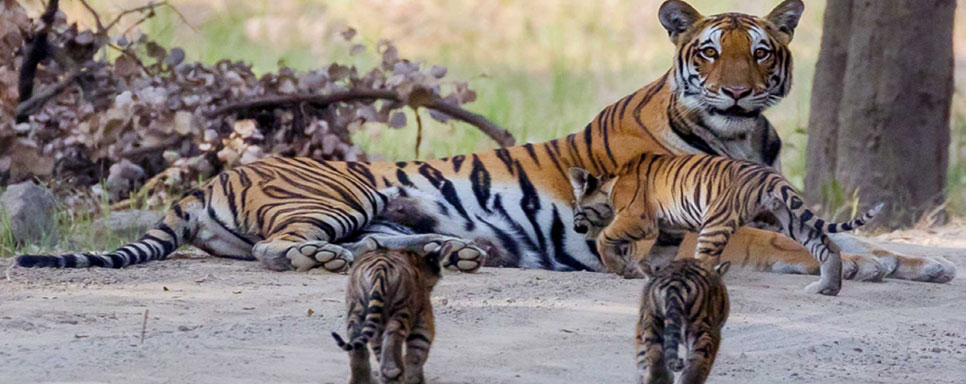A Wildlife Heritage of Northern India

Situated in the Terai region of Uttar Pradesh, Dudhwa National Park is a hidden gem that offers a unique blend of lush landscapes, diverse wildlife, and rich cultural heritage. Spanning over 490 square kilometers, this park is a crucial part of the Dudhwa Tiger Reserve and one of India's most pristine and lesser-known wildlife sanctuaries. Established in 1977, Dudhwa National Park is a testament to the rich biodiversity of the Indian subcontinent and an ideal destination for nature enthusiasts, wildlife photographers, and adventure seekers.
A Diverse Ecosystem
Dudhwa National Park boasts a diverse ecosystem that includes dense forests, grasslands, swamps, and numerous water bodies. This varied terrain supports a wide array of flora and fauna, making it a paradise for wildlife lovers. The park's lush sal forests are interspersed with tall grasslands known as 'terai,' creating a habitat that supports both large mammals and a plethora of bird species.
Wildlife in Dudhwa
The park is home to several endangered and rare species. The most notable resident is the Bengal tiger, with Dudhwa being one of the critical reserves under the Project Tiger initiative. Alongside tigers, the park also shelters the Indian one-horned rhinoceros, which was reintroduced in the 1980s and has since found a safe haven here. Other significant mammals include leopards, elephants, swamp deer (barasingha), sloth bears, and the elusive fishing cat.
Dudhwa is also a bird watcher's paradise, with over 400 species recorded within its boundaries. The park's wetlands and grasslands attract a variety of migratory birds, including the Bengal florican, the great slaty woodpecker, and the critically endangered white-rumped vulture. Bird enthusiasts can also spot numerous species of eagles, owls, and kingfishers, making it a perfect destination for ornithologists.
Safari and Exploration
Exploring Dudhwa National Park is an exhilarating experience. The park offers jeep safaris and elephant rides, allowing visitors to venture deep into the forest and grasslands for close encounters with wildlife. The safaris are conducted by trained guides and naturalists who provide insightful information about the park's ecology and inhabitants.
A unique feature of Dudhwa is its network of canals and rivers, including the Sharda River. Boat safaris on these waterways offer a different perspective of the park, allowing visitors to spot aquatic animals and birds in their natural habitat. The tranquil boat rides also provide an opportunity to see the gharial and mugger crocodiles basking on the riverbanks.
Cultural Heritage
The region around Dudhwa is rich in cultural heritage, with several indigenous tribes residing in the area. The Tharu tribe, in particular, has a significant presence around the park. Visitors have the opportunity to explore Tharu villages and learn about their unique culture, traditions, and sustainable way of living that harmonizes with the surrounding environment.
Planning Your Visit
The best time to visit Dudhwa National Park is between November and June, when the weather is pleasant and wildlife sightings are more frequent. The park is easily accessible from major cities like Lucknow and Delhi, with several transport options available, including road, rail, and air.
Accommodations near the park range from government-run forest rest houses to private lodges and resorts, catering to different preferences and budgets. Staying in these accommodations provides an immersive experience, with many offering guided tours, nature walks, and cultural programs.
Conclusion
Dudhwa National Park is a true wildlife heritage site, offering a unique blend of natural beauty, diverse wildlife, and rich cultural experiences. Whether you're a seasoned wildlife enthusiast or a curious traveler, a visit to Dudhwa promises an unforgettable journey into the heart of India's natural and cultural treasures.